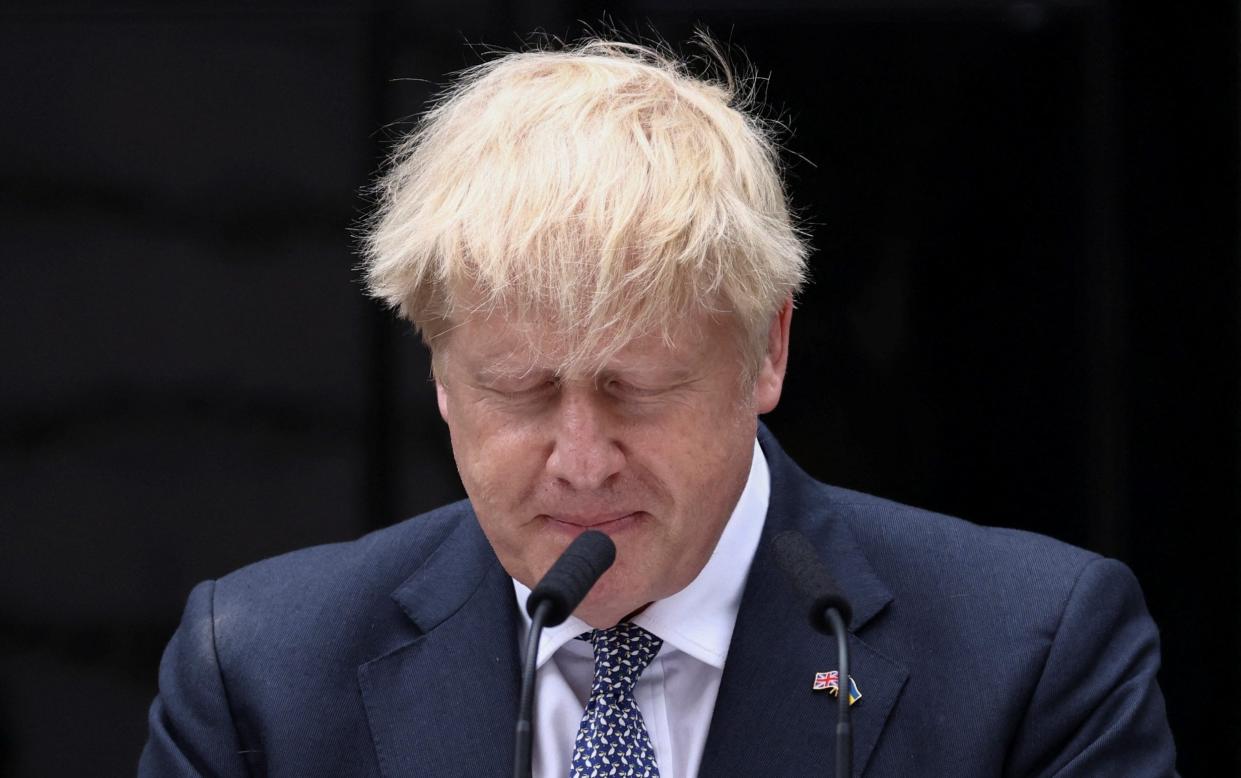Tory MPs plotting to replace Boris Johnson by end of next week

Tory MPs are plotting to replace Boris Johnson by the end of next week by side-stepping party members.
Although the Prime Minister has announced his resignation, a timetable is still to be agreed with Sir Graham Brady.
Sir Graham, the chairman of the 1922 Committee is coming under pressure to expedite the first stage of the leadership race so the hopefuls are whittled down to the final two by MPs before the summer recess on July 22.
Ordinarily, those two candidates would then spend several weeks campaigning for the support of the 200,000-strong party membership before the members choose a winner.
But there is likely to be significant pressure placed on the weaker of the two would-be prime ministers to pull out in order to avoid the process being protracted over the summer.
Referring to Theresa May winning the 2016 leadership race, one veteran Tory backbencher said: “They are praying for an Andrea Leadsom moment where we are left with two candidates and one pulls out.
“That then avoids taking it to the membership. It’s not that they want to deny the members a say – it’s that they want to avoid a drawn-out process that looks self-indulgent during a cost of living crisis.
“Another problem is there is currently no party chairman and consequently no structure to support a leadership race over the summer involving a series of hustings and heavy campaigning across the country.”
Mr Johnson is still to replace Oliver Dowden after he resigned as chairman after last month’s by-election defeats in Wakefield and Tiverton and Honiton.
Any expedited plan would require Sir Graham to announce the timetable on Friday and invite candidates to put their names forward over the weekend.
A longlist of MPs would then be drawn up early next week, with only those who had secured the support of at least eight of their colleagues making the final cut.
Tory MPs would then be asked to vote in three successive rounds to whittle the hopefuls down to a final two.
The candidates need to earn the backing of at least five per cent of the parliamentary party, or 18 MPs, to get through the first stage and 10 per cent – equating to 36 MPs – to pass the second.
The senior MP added: “If there was a mass hustings, with everyone given 15 minutes to make their pitch and then with two votes in a day, then we could be down to the final two by the end of next week.
“I think the general feeling is it needs to be a fast campaign.”
In May 2019, Mrs May announced that she would resign on June 7 and nominations opened three days later when 10 candidates were chosen.
The first ballot of MPs took place on June 13, with exhaustive ballots taking place on 18, 19 and 20 June before Mr Johnson and Jeremy Hunt were chosen as the final two.
But it was not until July 23 that Mr Johnson was announced as the winner following more than a month of hustings and campaigning across the UK.

 Yahoo Movies
Yahoo Movies 
